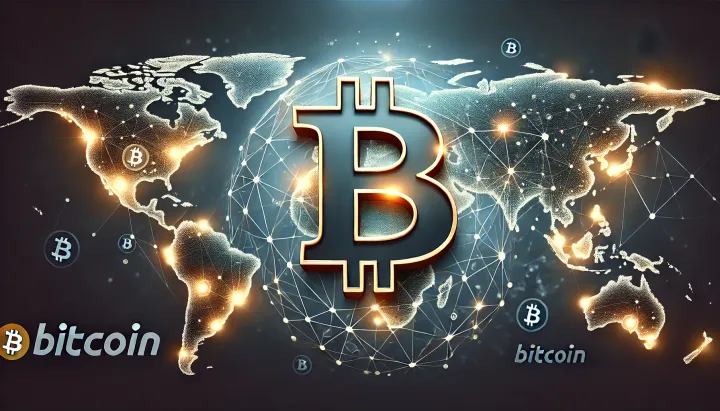Bitcoin Optionality for Hawaii: Savings, Remittances, and Self‑Custody
The April 18, 2025 episode of The Bitcoin Source features educator Britney Miyashiro outlining how Bitcoin offsets Hawaii’s steep living costs, streamlines Pacific remittances, and empowers Native and local communities.

- My 'briefing notes' summarize the content of podcast episodes; they do not reflect my own views.
- They contain (1) a summary of podcast content, (2) potential information gaps, and (3) some speculative views on wider Bitcoin implications.
- Pay attention to broadcast dates (I often summarize older episodes)
- Some episodes I summarize may be sponsored: don't trust, verify, if the information you are looking for is to be used for decision-making.
Summary
The April 18, 2025 episode of The Bitcoin Source features educator Britney Miyashiro outlining how Bitcoin offsets Hawaii’s steep living costs, streamlines Pacific remittances, and empowers Native and local communities. She praises emerging initiatives, from Base58’s hands‑on workshops to renewable‑powered mining, yet warns that looming self‑custody regulations could undermine these gains. Her balanced view highlights both urgent policy risks and tangible grassroots momentum.
Take-Home Messages
- Inflation Hedge: Bitcoin offers Hawaii residents a savings vehicle insulated from persistent cost‑of‑living pressure.
- Remittance Efficiency: Borderless transfers slash fees for families spread across Pacific islands, boosting local liquidity.
- Cultural Sovereignty: Native Hawaiian leaders see decentralized money as a tool for economic self‑determination.
- Education Pipeline: Base58 LARP and Honolulu Bitcoin transform curiosity into protocol fluency, feeding a tech workforce.
- Regulatory Crossroads: Proposed limits on self‑custody and on‑ramps threaten Bitcoin’s core value proposition; proactive advocacy is vital.
Overview
Britney Miyashiro traces her delayed but decisive embrace of Bitcoin to a 2022 “Bitcoin is Freedom” panel, framing the asset as practical resistance to currency debasement. She argues that Hawaii’s record rents and scant savings vehicles make an inflation‑proof store of value uniquely compelling. Distinguishing Native Hawaiians from other locals, she stresses culturally tailored outreach that respects historical grievances.
Geographic isolation magnifies remittance costs across Polynesia, Micronesia, and Melanesia. Miyashiro positions Bitcoin’s peer‑to‑peer settlements as a near‑instant bridge that bypasses costly intermediaries, strengthening family ties and small‑island commerce. She foresees Hawaii becoming a testing ground for low‑friction digital cash corridors.
Community infrastructure is evolving quickly. Honolulu Bitcoin is expanding beyond meetups into policy advocacy and business engagement, while Base58’s Bitcoin LARP lets participants “be the node,” accelerating technical literacy. These efforts aim to surface the many “hidden” island bitcoiners and convert passive interest into organized momentum.
Regulatory threats shadow this progress. Miyashiro fears that restrictions on private keys and on‑ramps could re‑centralize control just as Hawaii builds local capacity. Sustainable‑energy mining projects such as Gridless bolster Bitcoin’s environmental narrative, but without legal protection for self‑custody, the state’s fledgling ecosystem remains fragile.
Stakeholder Perspectives
- Local Residents: Seek cost‑of‑living relief and cheaper remittances but need intuitive self‑custody tools.
- Native Hawaiian Organizations: View Bitcoin as a path to reclaim economic autonomy and preserve cultural assets.
- State Legislators: Weigh innovation incentives against consumer‑protection and tax‑compliance mandates.
- Financial Institutions: Explore custody services yet fear revenue loss from traditional remittance channels.
- Educators & Non‑profits: Need curricula and funding to scale island‑wide Bitcoin literacy.
- Energy Developers: Assess renewable‑powered mining as both revenue source and grid‑stability lever.
Implications and Future Outlook
Bitcoin gives Hawaii residents a realistic way to save money that keeps pace with rising living costs and to send funds across the Pacific without high fees. Cheaper remittances strengthen family connections and free up household budgets for education, health care, and local business activity. If adoption spreads, the islands could gain a new flow of capital that makes the economy less dependent on tourism.
Rules on self‑custody and exchange access will shape whether these benefits last. Clear, fair regulations would attract responsible companies, protect consumers, and let community groups keep teaching people how to hold their own keys. Heavy‑handed limits, by contrast, could push users back to costly intermediaries and weaken Bitcoin’s value for ordinary savers.
Sustainable mining projects that tap surplus renewable power can turn an energy challenge into a revenue source for utilities and remote communities. Pairing this with hands‑on education—such as Base58 workshops—prepares a local workforce for high‑skill jobs, reducing the brain drain to the mainland. Taken together, these trends point to a future where Hawaii exports software talent and clean energy solutions, not just sun and scenery.
Some Key Information Gaps
- What legal safeguards will protect self‑custody rights in Hawaii? Preserving private‑key autonomy is critical to user sovereignty and long‑term network decentralization.
- Which technical and regulatory solutions can cut Pacific remittance fees most effectively? Lower transaction costs carry high social impact and exportable policy value.
- Which Bitcoin‑aligned industries can curb Hawaii’s tech brain drain? Local job creation links economic resilience with talent retention.
- What design innovations will make secure self‑custody intuitive for mainstream users? User‑friendly tools are essential for mass adoption without reliance on custodians.
- How will growing institutional adoption alter Bitcoin’s decentralization and governance norms? Understanding potential centralizing forces informs both policy and protocol development.
Broader Implications for Bitcoin
Island Resilience and Capital Flows
Bitcoin‑enabled remittances could evolve into broader cross‑border trade settlements, positioning Hawaii as a regional financial hub. Enhanced liquidity might attract venture capital and fintech experimentation that diversify the state’s tourism‑heavy economy. Success would signal to other isolated regions that decentralized rails can underwrite economic resilience.
Energy Market Innovation
If renewable‑powered mining proves profitable, utilities might integrate flexible Bitcoin loads to stabilize grids and monetize excess capacity. Such integration could accelerate renewable build‑outs by providing a guaranteed buyer of intermittent output. Wider adoption would challenge prevailing narratives about Bitcoin’s environmental footprint.
Cultural Preservation via Digital Endowments
Native Hawaiian organizations could use Bitcoin treasuries to create immutable, inflation‑proof endowments for language programs, land stewardship, and historical sites. On‑chain transparency would increase donor confidence and global participation. This model could inspire indigenous communities worldwide to safeguard cultural heritage outside volatile fiat systems.



Comments ()